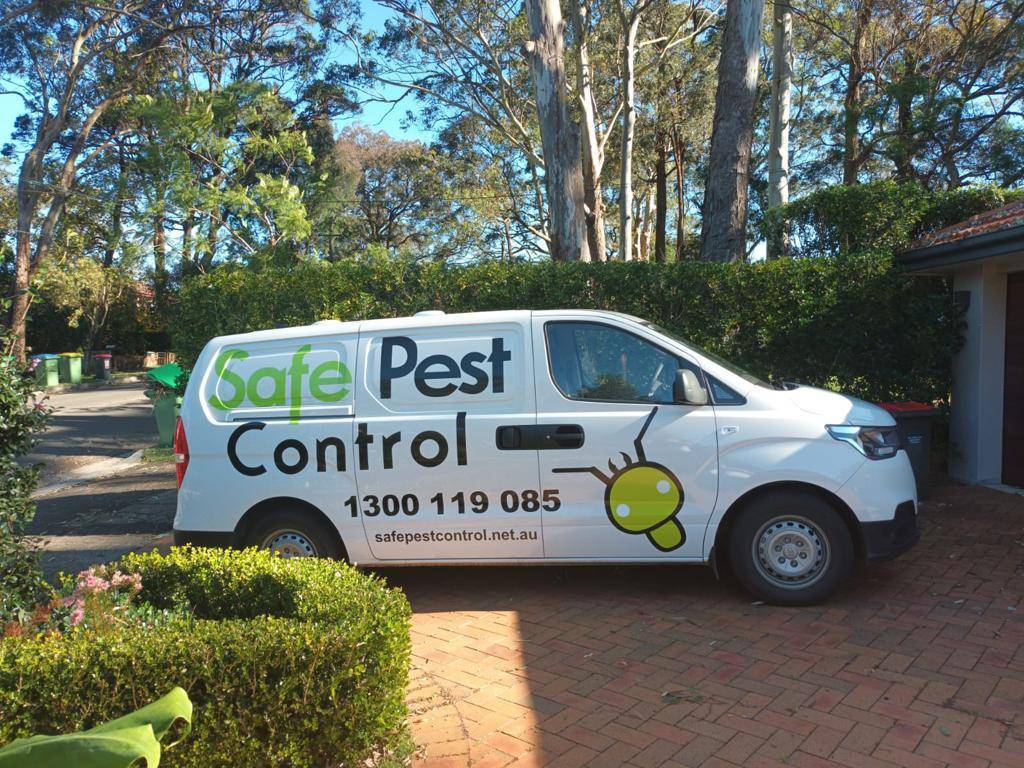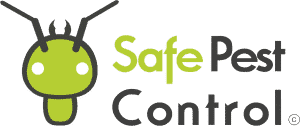PEST CONTROL FOR FOOD PROCESSING PLANTS
Safeguarding Your Food Chain | Pest Control Solutions for Food Processing
In the regulated and cleanliness realm of food manufacturing keeping pests at bay is not just a necessity but a key factor, in achieving operational excellence. Pest control services for food processing plants play a role, in upholding the quality and safety standards of food items ensuring they adhere to health regulations throughout the entire production process. Our specialized methods involve utilizing strategies and friendly remedies tailored to address the specific challenges encountered by food processing facilities. Emphasizing prevention, early detection and efficient elimination we offer pest control solutions that help maintain the operation and compliance of your facility.
On-Time Service

5 STAR SERVICE BASED ON 100+ GOOGLE REVIEWS
PET & FAMILY FRIENDLY TREATMENT

ALL YEAR-ROUND PROTECTION
Take Back Control Now
Importance of Pest Control for a Safe Food Industry
In the intricate world of food processing, the unwavering focus on safety and hygiene is paramount. This industry, which is at the heart of global food supply chains, serves millions of consumers daily, necessitating strict standards and safeguards to protect public health. Among these safeguards, pest control emerges as a pivotal aspect. Effective pest control in food processing plants not only ensures the highest standards of food safety but also maintains the operational integrity of these facilities.
Pests, including insects, rodents, and birds, can pose severe risks to food safety by introducing harmful pathogens that could contaminate food products, compromising their quality. They can also damage vital processing equipment and facility infrastructure. As such, pest control is not merely a reactive measure but a proactive necessity in the food processing industry. It involves implementing systematic strategies and regular monitoring protocols to minimize pest intrusion and effectively manage any occurrences that may arise.
The role of pest control in ensuring a safe food industry cannot be overstated. An unchecked pest infestation can lead to devastating consequences, threatening to compromise an entire food processing operation. Pests can introduce dangerous contaminants into food products, leading to potential health hazards for consumers and potentially causing significant harm to a company’s reputation.
Moreover, the global food industry operates under stringent regulatory oversight. Failure to manage pests effectively could lead to regulatory non-compliance, resulting in hefty fines, penalties, or even operational shutdowns. This underlines the significance of pest control in the food industry; it’s not just about maintaining quality and ensuring public health but also about ensuring the long-term sustainability of food processing operations.
In the pursuit of a pest-free environment, facilities not only uphold their reputation but also secure consumer trust. Pest control therefore becomes indispensable, transcending its traditional role as a hygiene measure to become an integral part of the broader business strategy within the food processing industry. It’s not just about producing food; it’s about producing safe, high-quality food consistently in a safe, pest-free environment.
Book a FREE consultation with a Food Manufacturing Pest Control specialist. Call 1300 119 085
8
REASON TO CHOOSE SAFE PEST CONTROL
- Guarantee protection all year-round
- 30 Years Collective Experience
- An impeccable reputation across Sydney's Suburbs
- Certified treatments & written Warranty On all work carried out
- Family Owned & Operated
- Rated #1 Pest Control Sydney
- No Mess, No Smell
- Family & Pet Friendly Treatments

100 +
Reviews

IPM: An Effective Pest Management Method to Protect Food in Facilities
Integrated Pest Management (IPM) emerges as a sustainable and efficient approach to pest control, particularly pertinent to the food processing industry. IPM is not a single pest control method but rather, a series of pest management evaluations, decisions, and controls. It hinges on an in-depth understanding of the life cycle of pests and their interaction with the environment.
This approach is multi-faceted, encompassing a variety of strategies such as biological control, use of resistant varieties, and modification of cultural practices, with pesticide application as a last resort. The essence of IPM lies in its flexibility and adaptability. It considers the long-term prevention of pests or their damage through a combination of techniques such as habitat manipulation, biological control, modification of cultural practices, and the use of resistant varieties.
IPM balances economic, health, and environmental factors, promoting a safer and more sustainable form of pest control. The reliance on a wide range of management practices, combined with the judicious and targeted use of pesticides, makes IPM an effective tool in the fight against pests. Its efficacy stems from its scientific basis and its ability to adapt to local conditions, reducing dependence on chemical control methods.
Use of IPM in Food Protection: Devising Pest Control Strategies for Food Processors
For food processors, IPM becomes a crucial tool in their pest management toolbox. The flexibility and adaptability of IPM strategies allow food processing facilities to tailor their pest control strategies to their unique needs and circumstances. This customization can result in more effective and efficient pest management.
Implementing IPM in food processing plants involves multiple stages. Initially, it requires an understanding of the specific pests that pose a threat to the facility. This understanding informs the creation of an environment less attractive to pests. For example, this could involve structural modifications to prevent pest entry, such as sealing cracks, installing screens, or improving drainage systems.
Sanitation efforts also form an integral part of an IPM strategy. Regular cleaning to remove food residues and waste can significantly reduce pest attractants, making the environment less conducive to pest survival.
Monitoring and documentation are other vital components of an IPM strategy. Regular inspections, pest identification, and tracking of pest populations can help detect any infestation early on, allowing for more effective management.
Finally, when necessary, the targeted use of pesticides can provide a final line of defence. This usage is judicious and precise, ensuring minimal harm to the environment and non-target species.
In conclusion, IPM offers a holistic, sustainable, and effective strategy for pest control. It emphasizes the importance of understanding pests and their interaction with the environment, allowing for more precise and tailored interventions. Through the implementation of IPM, food processors can not only control pests but also protect their products, their customers, and the environment. Get Tailored Commercial Pest Control Solutions for the Food Industry, Call 1300 119 085.
Actions Speak Louder Than Words.
Common Pests in Sydney
Choose Safe Pest: Your Partner in Food Industry Pest Services
The selection of a pest control service for food processing facilities is a decision that requires careful consideration. You need a service provider who understands the unique challenges of your industry and has the tools and expertise to meet these challenges effectively. Safe Pest Control presents itself as the ideal partner in this endeavour.
Safe Pest Control has been at the forefront of pest control services, offering industry-specific solutions backed by years of experience. They understand the intricacies of the food industry and provide services tailored to meet its unique needs. The company has built a reputation for its commitment to safe and effective practices, and this commitment extends to every aspect of its operations.
With Safe Pest Control, you can expect a comprehensive pest management program that includes meticulous site inspections, identification of potential risk factors, and the implementation of proactive pest management strategies. Their approach is data-driven, relying on innovative tools and technologies to monitor pest activity and identify trends.
But beyond their technical expertise, Safe Pest’s most significant strength lies in its commitment to customer service. They believe that effective pest management is a collaborative effort and work closely with their clients to ensure their needs are met and expectations exceeded. Call 1300 119 085.
Pivot of Food Safety | Food Manufacturing Pest Control
In the context of food safety, pest control isn’t just an operational necessity – it’s the pivot around which all food safety efforts revolve. Pests can carry a variety of harmful pathogens, which they can introduce to food products during processing. This potential for contamination presents a significant risk to consumer health and a facility’s operational integrity.
Without effective pest control, the food processing environment can become a breeding ground for pests. This not only increases the risk of food contamination but can also result in regulatory violations. In many jurisdictions, food processing facilities are required to implement pest management programs to comply with food safety regulations. Failure to meet these requirements can lead to penalties, reputational damage, and even closure of the facility.
But more than just a regulatory requirement, pest control is a crucial component of a comprehensive food safety program. It’s about protecting consumers and ensuring they receive the highest quality products. Through effective pest control and management, food processing facilities can provide safe, high-quality food, uphold their reputation, and ensure their long-term success.
How to Choose the Best Pest Control Services for Your Food Processing Industry
Choosing a pest control service involves evaluating the provider’s knowledge of the food processing industry, their approach to pest control, their use of safe and effective methods, and their track record in terms of customer satisfaction.
Why Pest Control Matters in the Food Industry: Protecting Food and Facilities
Pest control is crucial not only to protect the food but also the facilities where it is processed. Pests can cause physical damage to the infrastructure and equipment, disrupting operations and causing financial losses.
Selecting the Right IPM Strategies for Optimal Pest Control in Food Protection
The right IPM strategy is crucial for effective pest control. It needs to be comprehensive, covering all aspects of pest management, from prevention and detection to control, with a focus on minimal pesticide usage. Call 1300 119 085.
Pest Control in the Food Industry: Protect Your Food Processing Facilities with Pest Management Services
Protect your investment in the food processing industry by employing effective pest management services. These services can help ensure a pest-free environment conducive to high-quality food production.
Choose IPM: Safeguard Your Food Production and Extend Industry Life Span
Adopting IPM can safeguard your food production against the potential devastation caused by pests. Not only does it ensure the safety and quality of the food, but it also contributes to the sustainability and longevity of the industry.
Safe Pest: Proven Pest Services for Food Industry Protection
In the battle against pests in the food industry, Safe Pest stands as a reliable partner. With a reputation built on quality service and innovative solutions, it offers the assurance of a pest-free environment for your food processing facilities. Call 1300 119 085.
Our Latest Articles
How to Get Rid of Cockroaches: Pest Control Tips for Sydney Homes
How to Get Rid of Cockroaches: Pest Control Tips for Sydney Homes Facebook Linkedin Youtube Cockroaches are among the most resilient and unwelcome pests in
Effective Rodent Control Strategies for Homes Across Sydney
Effective Rodent Control Strategies for Homes Across Sydney Facebook Linkedin Youtube Rodents can be a serious nuisance for homeowners, posing health risks and causing structural
How to Choose Reliable Pest Control Services in Castle Hill
How to Choose Reliable Pest Control Services in Castle Hill Facebook Linkedin Youtube Finding the right pest control service can feel like a daunting task,
Why Pest Control is Critical for Homes in Sydney’s Inner West
Why Pest Control is Critical for Homes in Sydney’s Inner West Facebook Linkedin Youtube Living in Sydney’s Inner West comes with many benefits—great community vibes,
Choosing the Best Commercial Pest Control in Sydney for Your Needs
Choosing the Best Commercial Pest Control in Sydney for Your Needs Facebook Linkedin Youtube Maintaining a pest-free environment is crucial for any business, as unwanted
Effective Pest Control Solutions to Protect Your Sydney Property
Effective Pest Control Solutions to Protect Your Sydney Property Facebook Linkedin Youtube Protecting your home from pests is essential for maintaining a healthy and comfortable








